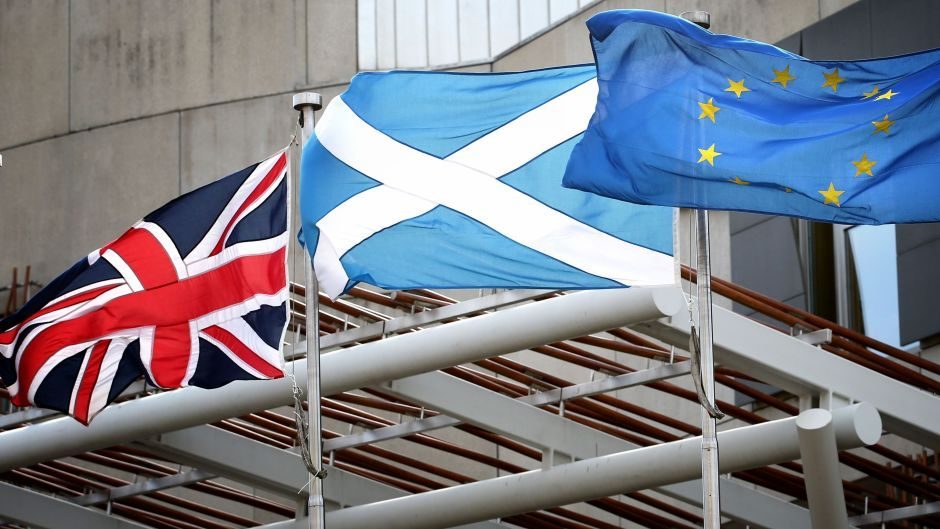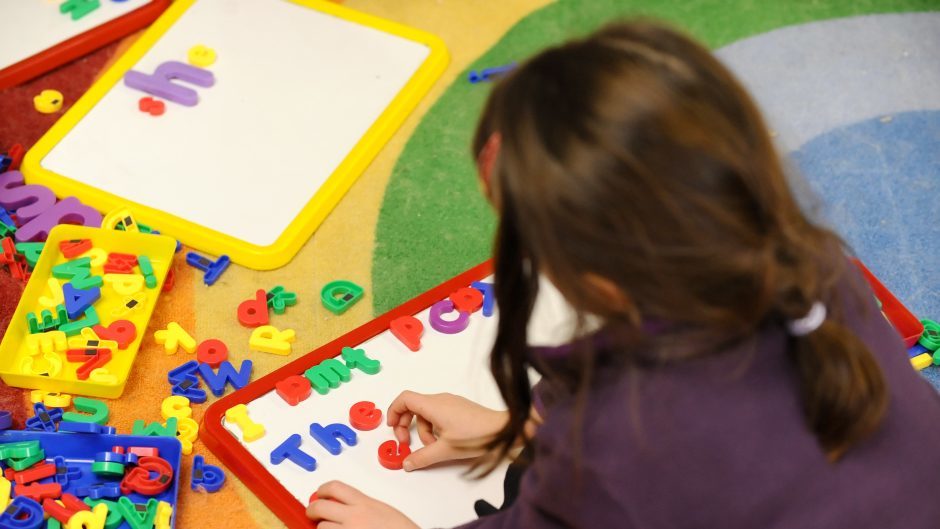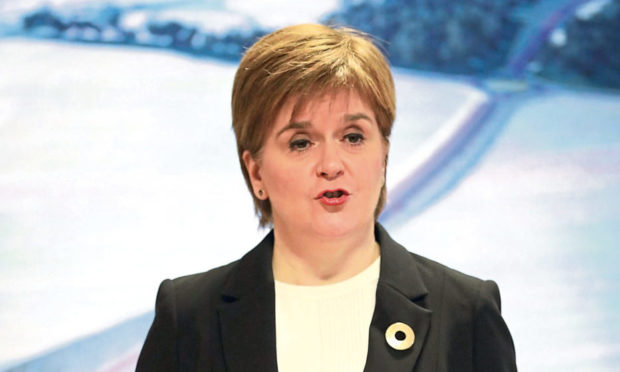Health, jobs and a wider economic recovery from the shocks of coronavirus are expected to be front and centre when Nicola Sturgeon unveils her latest programme for government.
The first minister will announce her administration’s legislative agenda for the rest of the parliamentary session on Tuesday, and it is anticipated the programme’s main aim will be to lay the groundwork for rebuilding the economy.
Ms Sturgeon has already promised a “radical” approach to policies that capitalise on an opportunity “not simply to go back to how things were, but to address many of the deep-seated challenges our country faces”.
A second independence referendum, action on climate change, driverless buses in Fife and electric planes were top of the bill last time but the global outbreak of Covid-19 scuppered some of the government’s biggest plans.
Scottish independence
The SNP leader was accused by opposition parties of caring only about Scottish independence at last year’s announcement, after she argued her government had a “clear mandate” to offer the arrangement to voters within 18 months.
She said the Referendums Bill, introduced before the summer recess and passed by the Scottish Parliament that December, would provide a ballot “beyond legal challenge”.
After winning what she described as an “unarguable mandate by any normal standard of democracy” in December’s snap General Election, Ms Sturgeon wrote to Boris Johnson to request the powers to legally stage another referendum.

She also published a 38-page document that set out draft amendments to the statute devolving the right to hold votes on leaving the UK to Holyrood.
Her requests were denied by the prime minister, leading some within her party to call for a wildcat referendum or a definitive ‘plan B’ if Downing Street continued to reject requests for a new referendum.
As coronavirus began to spread throughout Europe, it became increasingly unlikely a new vote would go ahead before the 2021 Scottish Parliament election.
Constitution minister Mike Russell wrote to Michael Gove in March, less than a week before the UK-wide lockdown came into force, to confirm the Scottish Government had “paused work” on preparing for a new ballot because of the crisis.
A full 12 months on from last year’s programme announcement and with polls showing sustained majority support for independence for the first time, the SNP are expected are expected to push forward with plans if they secure a majority next year.
Climate change
Another ambition announced by the first minister was to “consolidate Scotland’s position as a leader” in the battle against climate change.
This included a Green New Deal using the Scottish National Investment Bank, a £3 billion green investment portfolio and a green growth accelerator – what the Climate Change Emergency Response Group (CERG) termed a ‘Green City Deal’.
Ms Sturgeon said her “embryonic Scottish Green Deal” would put the Highlands and Islands on a path to becoming the world’s first net zero aviation region by 2040 and reduce railway emissions to zero by 2035.
Her ambitions received a blow in early April after it was confirmed the United Nations climate change conference, COP26, which was due to be held in Glasgow, had been postponed because of Covid-19.
The event had been expected to attract over 30,000 delegates from around the world, including heads of state, climate experts and campaigners.

It is expected the event will now be rescheduled for the middle of next year, if the pandemic can be brought under control.
Climate change secretary Roseanna Cunningham announced on the same week that the publication of the Scottish Government’s Climate Change Plan update had been delayed, alongside a number of other key pieces of legislation at Holyrood.
It is now expected to be reworked as part of the green recovery from coronavirus.
Ms Cunningham said the government remains fully committed to tackling the global climate emergency but it was “no longer feasible or appropriate” to meet deadlines.
Low Emissions Zones (LEZs) were expected to be put in place in Dundee, Aberdeen and Edinburgh by the end of this year under the arrangements, with consultations under way to achieve zero-emission city centres by the end of the next decade.
Local authorities are “working closely” with Transport Scotland to take forward Low Emission Zones “when the current crisis subsides” but progress has been stalled for now.
Child poverty
Ms Sturgeon said Scotland had “long faced a problem of persistent and often multi-generational poverty” and vowed her government would take “bold steps” to meet its targets on child poverty.
The Scottish Child Payment was brought forward so that low-income families with a child under six will from November be able to apply for £10 per child per week to assist with living costs, with payments to start from the end of February 2021.

However, an expansion of free childcare to 30 hours per week for all three and four-year-olds – and for two-year-olds from disadvantaged backgrounds – has been delayed.
The Scottish Government is working to introduce Scottish disability payments from next year as part of 11 key benefits devolved from Westminster to Holyrood, although the process has so far been mired in problems.
Social security secretary Shirley-Anne Somerville said coronavirus had presented “challenging circumstances” for the rollout of this year’s tranche, and resources had been reduced as some staff were transferred to support the government’s response.
The UK benefits systems has also experienced a “huge increase” in demand following a spike in unemployment during lockdown.
